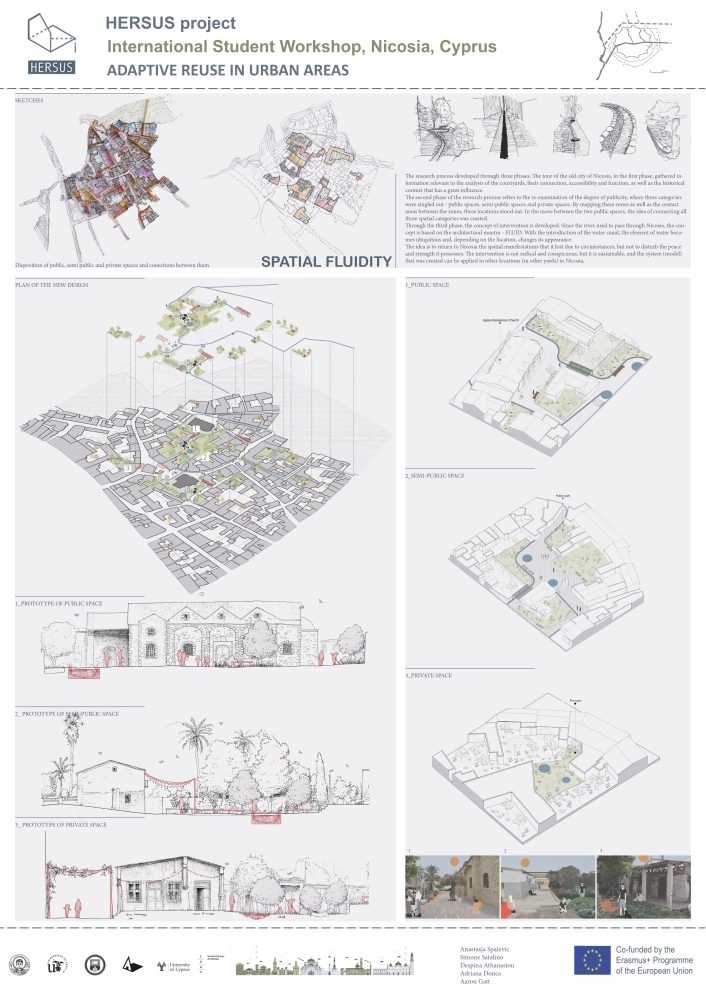Student Workshop 2 - Group 2
SPATIAL FLUIDITY

Concept
The research process developed through three phases. The tour of the old city of Nicosia, in the first phase, gathered information relevant to the analysis of the courtyards, their connection, accessibility and function, as well as the historical context that has a great influence.
The second phase of the research process refers to the re-examination of the degree of publicity, where three categories were singled out – public spaces, semi-public spaces and private spaces. By mapping these zones as well as the contact areas between the zones, three locations stood out. In the move between the two public spaces, the idea of connecting all three spatial categories was created.
Through the third phase, the concept of intervention is developed. Since the river used to pass through Nicosia, the concept is based on the architectural mantra – FLUID. With the introduction of the water canal, the element of water becomes ubiquitous and, depending on the location, changes its appearance.
The idea is to return to Nicosia the spatial manifestations that it lost due to circumstances, but not to disturb the peace and strength it possesses. The intervention is not radical and conspicuous, but it is sustainable, and the system (model) that was created can be applied in other locations (in other yards) in Nicosia.